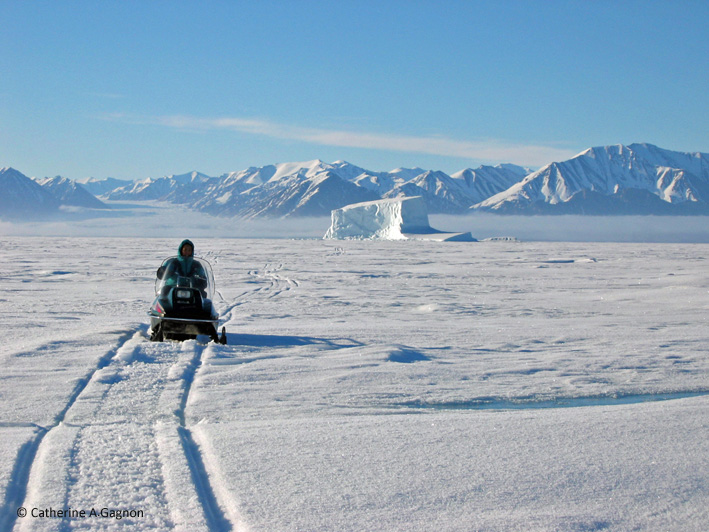Through millennia of interactions and use of arctic ecosystems, Inuit have developed an extensive ecological knowledge about northern environments. Over the last decades, there has been an increased interest in finding innovative ways to enhance the incorporation of this Traditional Ecological Knowledge (TEK) within ecological investigations and environmental management.

In this context, Parks Canada has established a priority commitment to use TEK to help guide the management and research on the ecological integrity of its parks in Nunavut. For the specific area of the Sirmilik National Park, a workshop held in 2001 led to the conclusion that the collection and integration of TEK related to birds, wildlife behaviors and polar bear denning areas should be set as priorities for this area.
In response to these recommendations, we have developed a project that aimed at collecting Inuit knowledge about greater snow geese as well as arctic and red foxes (their behavior, distribution, population trends, harvesting methods, cultural importance, etc.). Both species are important components of the local terrestrial ecosystem.
This Inuit Knowledge Project on foxes and geese has been conducted in collaboration with the broader Parks Canada’s Inuit Knowledge Project and the community of Pond Inlet. Throughout the project, the investigators aimed to promote the occasions for meaningful exchanges and collaboration between community members, scientists and Parks Canada staff. All of whom have various roles to play in the understanding and preservation of the ecological integrity of the local environment.
More information on this research project can be found in the following pages and in this research publication:
Gagnon, C.A. & D. Berteaux. 2009. Integrating traditional ecological knowledge and ecological science: a question of scale. Ecology and Society 14: 19
| Collection of knowledge |
